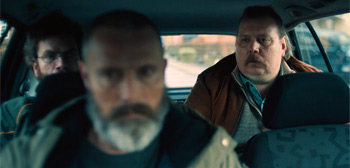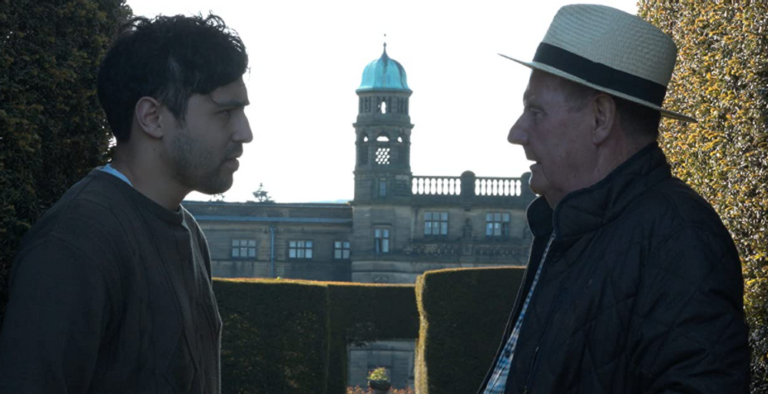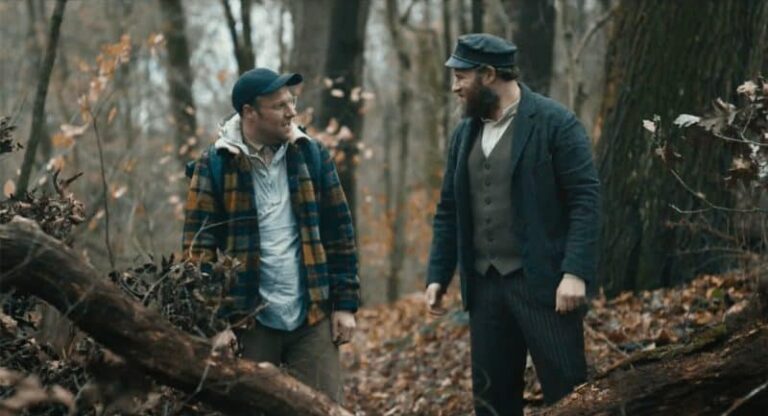SXSW 2021: Clerk, Not Going Quietly, Tom Petty: Somewhere You Feel Free
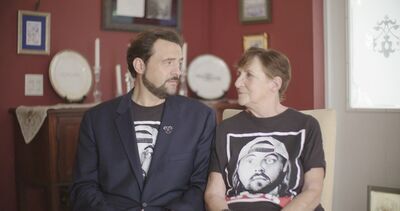
Of all the filmmakers who have accomplished a great many things in their career, Kevin Smith is not very high on the list of those who need their own career retrospective. Namely because his life story has become a part of his brand, with podcasts and self-reflective movies, specials that share insider stories, etc. But that doesn’t make him any less amicable, or his story less warming, and that’s the appeal of Malcolm Ingram’s 110-minute documentary about Smith—it touches on the stuff that you may or may not know, but with a strong enough pacing and long list (Stan Lee! Ben Affleck! Joey Lauren Adams!) of talking heads. For all the reasons that it has to not exist, “Clerk” at least offers a good time.
This is very much a cradle-to-the-“Jay and Silent Bob Reboot” documentary, following the New Jersey-based writer/director through his ascendancy with “Clerks” in the early ‘90s, to personal projects that played out with studio distribution or later were distributed by Smith himself. The documentary is also very much part of Smith’s brand, in that it never opposes or challenges him, and lets him guide the way. Smith even sits in with his brother and mother when they’re interviewed, which is more unusual than anyone involved seems to think.
Every major part of the Smith story seems to be covered, so much that it does honor the whiplash when Smith went from “Zack and Miri Make a Porno” to “Tusk,” the type of creative decision that could only come from someone dedicated to their own voice and wanting to stay an independent. But the documentary is certainly protective, and deflective, of the failures, reasoning mostly that “Mallrats” was a bomb because the critics didn’t like it, or that “Jersey Girl” was mired by Ben Affleck + Jennifer Lopez relationship controversy. A repeated narrative comes up—making movies is extremely hard, but it’s fun because it’s with your friends, even if sometimes the audiences don’t show up until later. It never gives the space to how Smith has simply made some bad movies, just like his peers.
Still, I enjoyed “Clerk,” the same way that I enjoy dipping into Smith’s universe through his movies. Ingram’s documentary succeeds at celebrating what is special about Smith, as a person and as a brand, even though it glaringly wants to guarantee shelf space inside Kevin Smith’s comic book store in New Jersey.
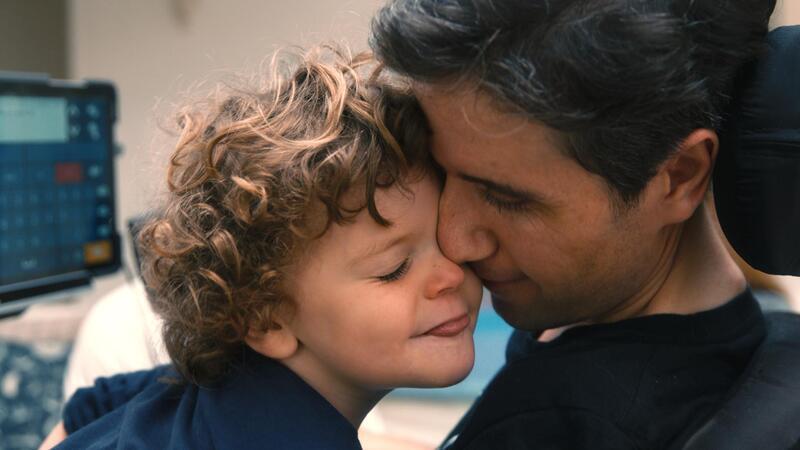
Nicholas Bruckman’s “Not Going Quietly” is a pure shot of inspiration, showing you up close the story of someone deeply cares and will not give up in the face of injustice. It follows Ady Barkan, a long-time activist for healthcare and social justice, known for rousing speeches, organizing fellow citizens, and for sometimes getting arrested. Years ago, he was diagnosed with ALS, causing the deterioration of his motor and vocal functions. Getting medical help was an eye-opening disaster, especially when it came to securing a ventilator that his insurance marked as “experimental.” “The knowledge that I was dying was terrible. But dealing with my insurance company was worse,” Barkan says. With his PAC known as Be A Hero, Barkan set out on a tour across the country to demand healthcare reform, and to confront the politicians who would be voting against progress.
The documentary follows Barkan on the tour, and shares the focus to others in his group, who are like a band of bad-ass activists. There’s people like Tracey, who leads sessions in how to bird-dog politicians, making for one of the movie’s best scenes. Or Liz, who knows how to play the social media game from the beginning with that Jeff Flake footage, and helps organize the Be A Hero tour. (She also knows the visual power in making Barkan speak through his machine at congress, instead of letting someone read it for him.) “Not Going Quietly” also honors the vigilance of Ana Maria Archila, whose confrontation of Jeff Flake in an elevator during the confirmation of Brett Kavanaugh trials went viral, while further exposing the former senator’s lack of spine.
Off the campaign trail, which becomes the documentary’s focus for most of its last third, “Not Going Quietly” depicts Barkan’s life at home. These passages are more matter of fact, if not directionless, and the change in energy in noticeably different. But in its overall narrative, “Not Going Quietly” has a special power in how it captures the resilience of Americans like Barkan who held on over the past four years, while speaking out against injustices that weren’t always beaten, but did become coals in the collective fire.
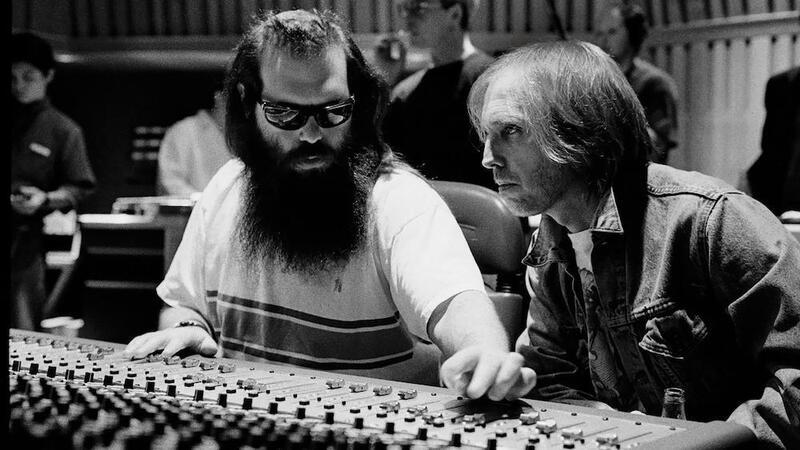
Presented as the festival’s centerpiece, the documentary “Tom Petty: Somewhere You Feel Free” is an in-depth revisitation to the recording of his 1994 album Wildflowers, which the singer-songwriter has claimed to be favorite of all his works. From the start to finish, this collection of black-and-white, in-studio footage is predominantly for Tom Petty fans, for those who get his music and want revisit the creation of these songs, track by track.
The documentary was made possible by a recently discovered trove of black and white footage, shot during the album’s creation and capturing candid performances of the songs. In modern-shot, also-16mm footage that’s in color, some of the people in Petty’s circle talk about the emotional importance of the album, like Petty’s daughter reflecting on how the record was the singer-songwriter winding up for a divorce, while trying to make music his own way. You don’t get a lot of sense of many other things that Petty had to overcome in the process, or his previous career. It’s more about appreciating the spirited touches that went into the album—which are often laid out by likes of producer Rick Rubin and Heartbreakers guitarist Mike Campbell, who talk about the making of Wildflowers like alumni recalling high school glory days.
If you’re not already a Petty fan, the film is too inside-baseball to reel you in, or help you “get” what makes him special compared to his peers. And as someone who doesn’t get what is so special about Tom Petty’s music, the documentary didn’t convince me of much, aside from noting his warm personality, the control in the music he wanted to make, and how he was good at blending his instincts with what is popular. But I suspect that those who approach the doc with their own relationship with Petty’s music will enjoy it, so long as they are ready for all things Wildflowers.
